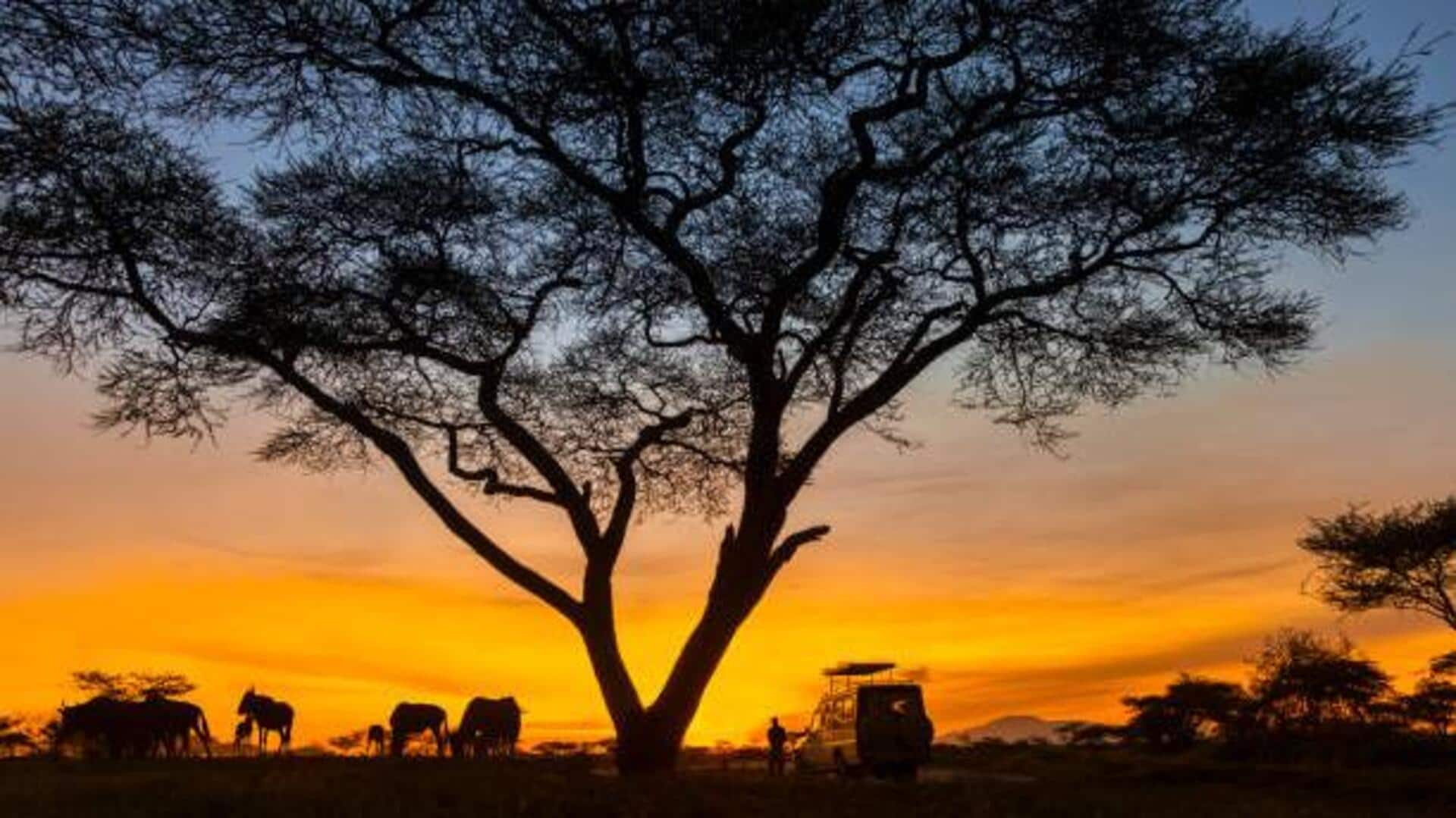
Why night safaris are a must for wildlife lovers
What's the story
Night safaris in Africa's game reserves are an absolute treat for anyone looking to explore wildlife in its natural habitat after dark. These safaris give an entirely different perspective from daytime tours, as a lot of animals are nocturnal and more active at night. Under the watchful eyes of experienced rangers, visitors can spot elusive creatures, making it an unforgettable experience for nature lovers.
#1
Exploring nocturnal wildlife
During night safaris, visitors can see nocturnal animals like leopards, hyenas, and bush babies. These animals are usually hidden during the day but come alive when the sun goes down. Specialized gear like infrared lights is used to spot these animals without disturbing them. This provides a rare view into their behaviors and interactions that aren't usually observed during the day.
#2
Safety measures on night safaris
Safety tops the priority list on night safaris. Guides ensure all participants remain inside the vehicle at all times to avoid any potential dangers from wildlife encounters. Vehicles are equipped with communication devices for emergencies, while guides also carry first aid kits for minor injuries. Following these safety protocols ensures a secure and enjoyable experience for everyone involved.
#3
Best time for night safaris
The ideal time for a night safari is the dry season when the vegetation is less dense and it is easier to spot animals. In most parts of Africa, this season is between May and October. During this time, water sources get scarce and more wildlife can be seen coming into viewable areas near waterholes or riversides where they can be spotted more easily.
Tip 1
Tips for an enjoyable experience
To make the most out of your night safari experience, dress warmly as the temperatures can drop significantly after sunset. Carry binoculars for better viewing opportunities and listen carefully to your guide's instructions throughout the tour. Being patient is key; some nights may yield fewer sightings than others due to various factors like weather conditions or animal behavior patterns.